It takes more than just compiling a list of blog ideas and proceeding with it to create a scalable, repeatable, and successful content marketing plan. Planning out your content and its strategy in advance can help you create content that delights and engages viewers across platforms. That way, you can put together a content marketing plan that generates an unprecedented amount of leads and sales, or at the very least, helps search engines find your content and brand.
However, as anybody who has attempted to create an effective content marketing plan can attest, it is not simple.
To get you there, you might want to have the appropriate content planning tools.
What is content planning?
Content planning is the careful process of organizing and managing the creation and sharing of content to achieve specific goals. It involves thinking about who you want to reach, what kind of content to use, where to share it, and when.
At its core, content planning is like making a map to make sure your content fits your brand’s goals and connects with your audience. It’s not just about words but also includes things like videos, pictures, and podcasts.
First, you set clear goals. What do you want your content to do? Increase awareness, get more customers, or teach something? Your goals help decide what type of content to create and where to put it.
Knowing your audience is crucial. What do they like? What problems do they have? Your content should be interesting to them and help them. Then, plan a schedule for your content. Decide what to make, when to share it, and who’s in charge.
Keywords, SEO, and checking out your competition are also important in content planning. They help your content show up in search results and do better than others. Overall, content planning is like creating a map to guide your content, make it powerful, and make sure it fits your brand and connects with your audience.
Why planning your content matters?
Here is why it matters:
Establishing consistency:
- Achieving a uniform online presence is essential for success across diverse marketing channels, including blogs, social media, newsletters, and video platforms.
- Consistency plays a pivotal role in enhancing audience engagement, establishing thought leadership, and fostering growth in areas such as email lists, website traffic, and revenue.
Identifying gaps:
- Setting explicit goals and utilizing content planning tools allows for the seamless detection of deficiencies in your content strategy.
- These tools offer insights into the alignment of content with business objectives, identify potential overreliance on sales emails, and ensure a comprehensive approach to original, native content across various social media platforms.
Sustaining focus:
- Successful content planning is vital for both individual influencers and marketing teams, ensuring organizational coherence and adherence to timelines.
- Individual influencers benefit by gaining a clear understanding of the time investment required, while marketing teams can leverage a well-structured plan to synchronize efforts efficiently, fostering collective alignment toward shared content goals.
What are content planning tools?
Content teams can more effectively integrate their creative efforts with business objectives and marketing strategies by staying organized and using content planning tools. These technologies let you maintain a clear overview of your content landscape at all times and publish regularly.
To coordinate multithreading procedures amongst teams, departments, and brands, teams implement content planning tools.
Top 11 content planning tools to try in 2024
In 2024, content planning tools have evolved to meet the ever-growing demands of content marketers and creators:
1. ContentCal:
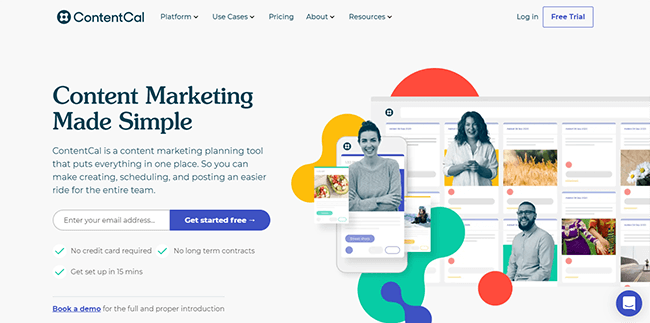
ContentCal offers a robust content calendar and collaboration platform, streamlining the content planning process for teams. It’s known for its user-friendly interface and integrated publishing features.
Pros: ContentCal is great because it’s super easy to use. The buttons and layout are simple, making it a smooth experience for everyone. If you’re working with a team, it’s awesome for collaboration. You can work together on content drafts and get things approved without any fuss. Adding clients to your account is easy too, which is really handy.
Cons: But, there are a couple of things to keep in mind. It only works with a few social networks, so if you use others, it might not be the best fit. Also, when we tested it, some people found problems with connecting to social media. Another thing is if you want better customer support, you have to pay more money. It’s like having different levels of help, and the best help costs more. Just something to think about.
2. Airtable:
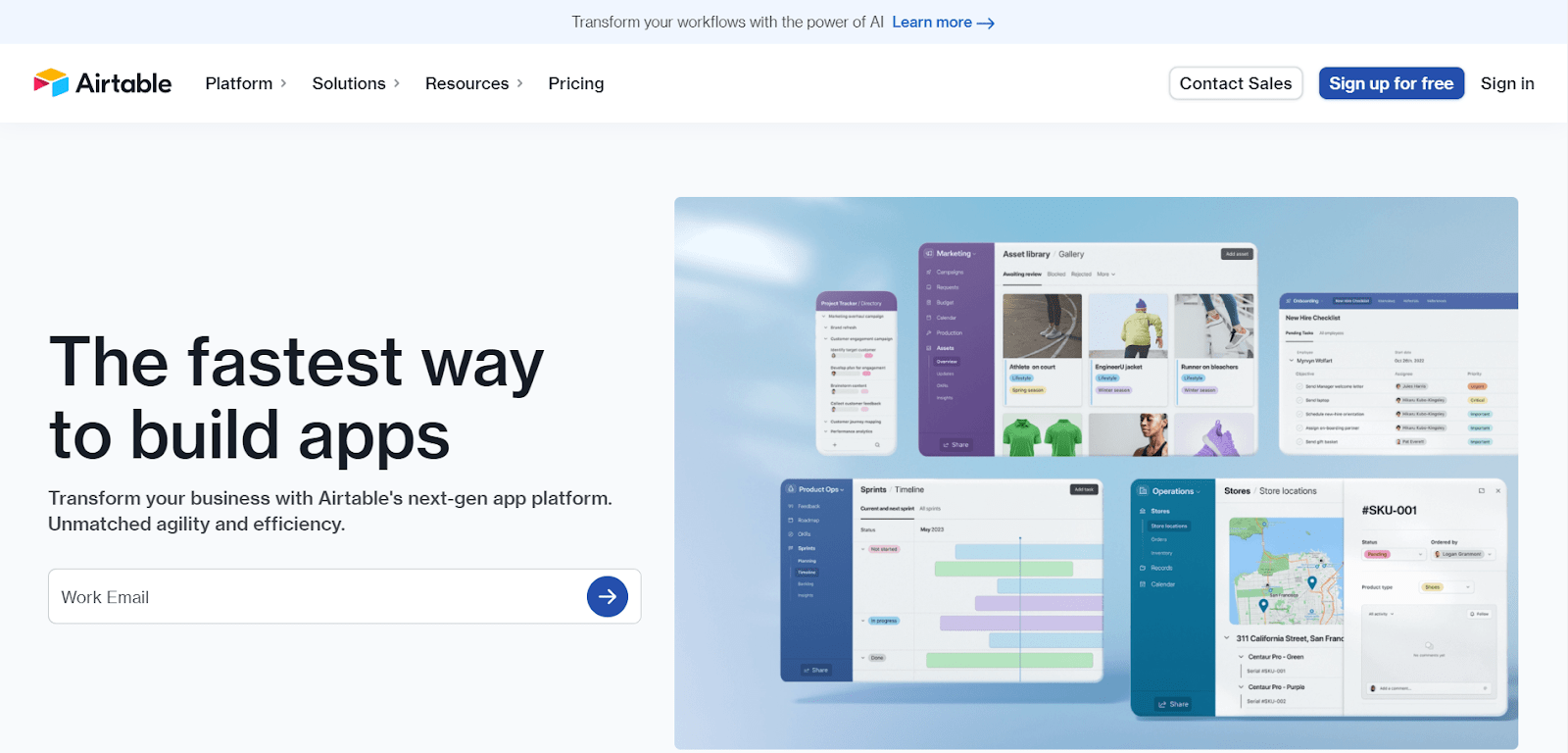
While not strictly a content planning tool, Airtable is a versatile database platform that can be customized for content planning, from editorial calendars to team collaboration.
Pros: If you’re looking for a customizable database “wrapper” and don’t mind spending time on customization, Airtable can assist in creating a tailored content planner app.
Cons: While Airtable’s templates serve as a foundation, additional features like publishing and analytics are separate apps that need to be added to your base.
3. CoSchedule:
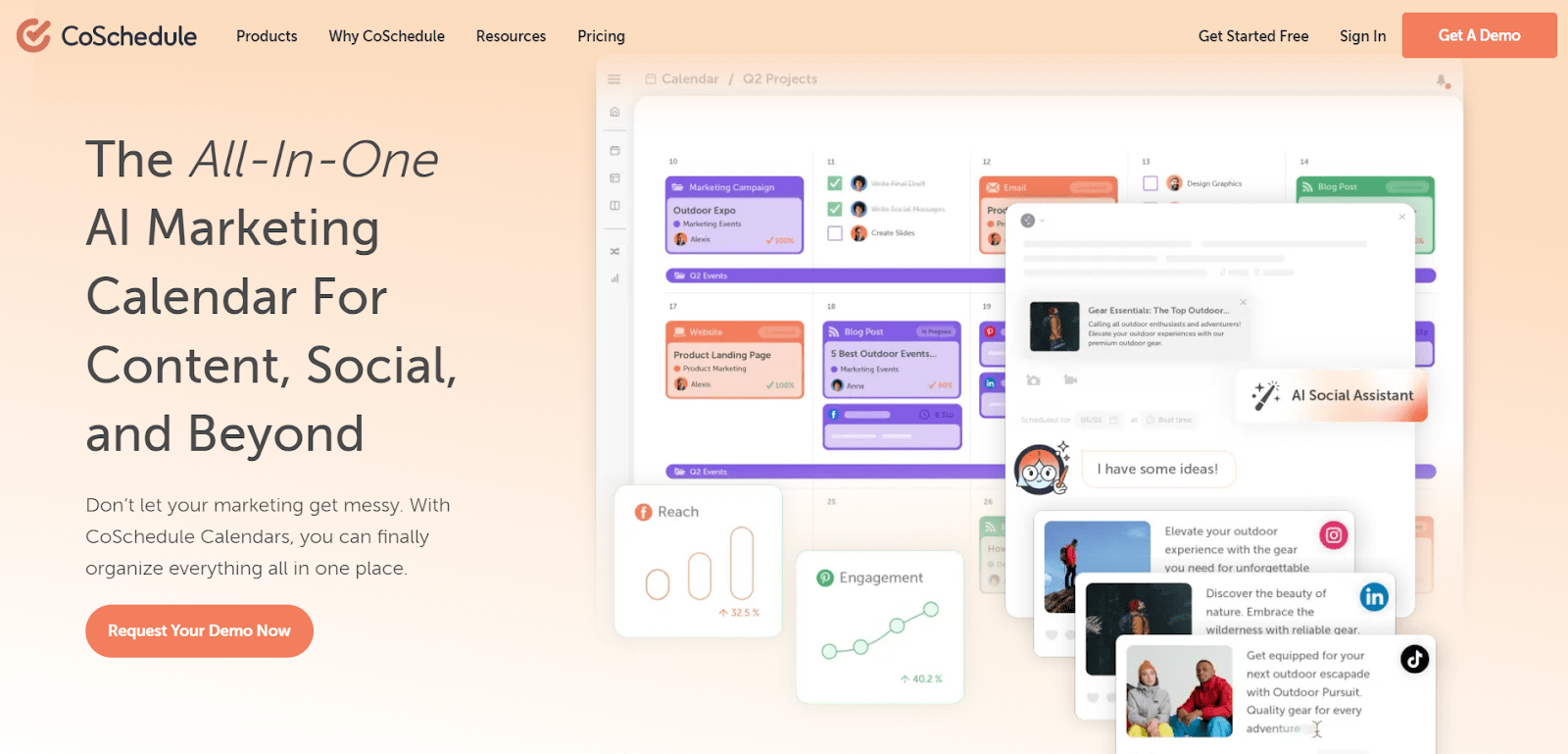
CoSchedule is an all-in-one marketing calendar that includes content planning features. It’s recognized for its ease of use and integrates seamlessly with WordPress.
Pros: CoSchedule is ideal for small teams and individual creators seeking to streamline their marketing efforts.
Cons: CoSchedule lacks flashy content solutions beyond its content calendar and collaboration features.
4. Brandwatch:
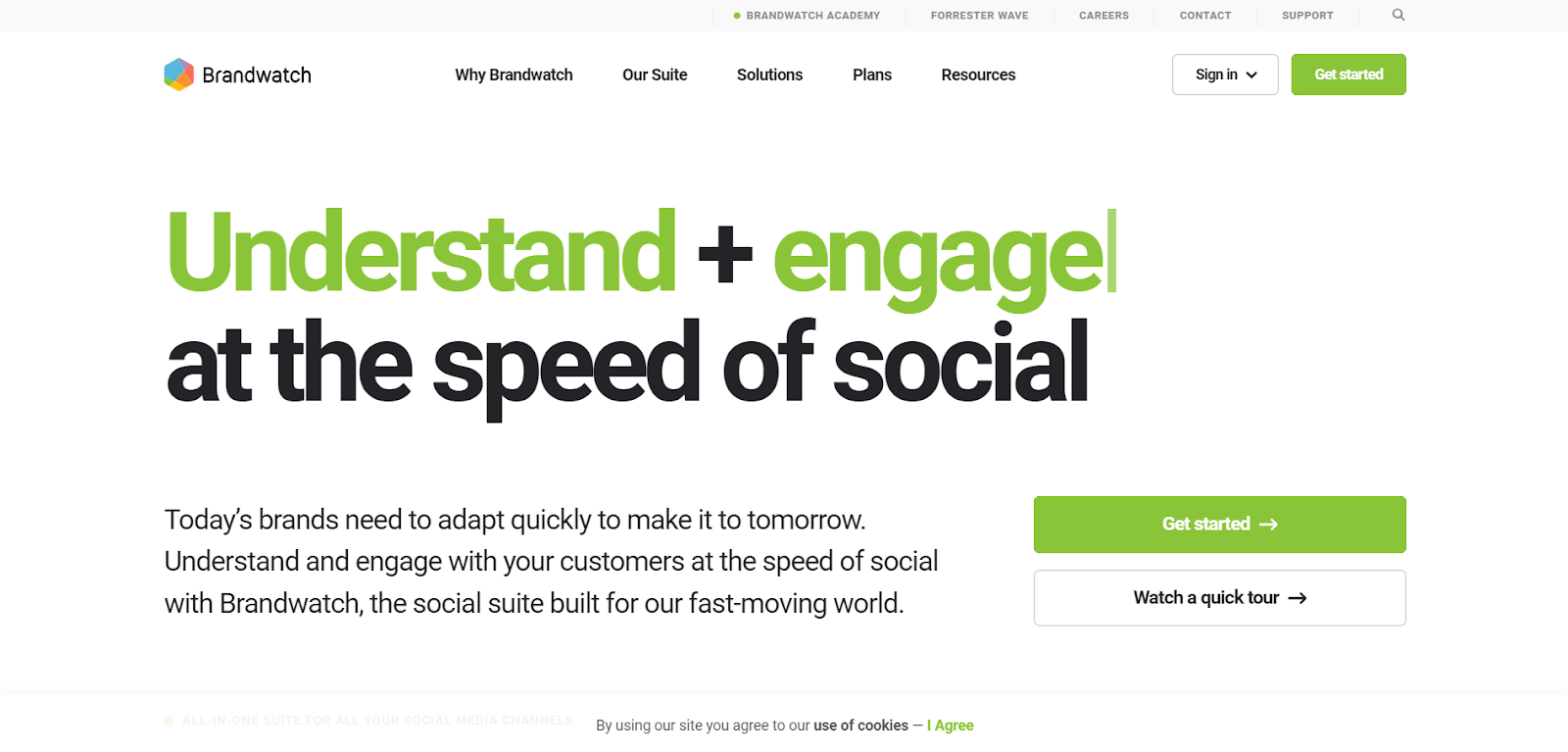
Brandwatch is a strong tool for listening and analyzing social media. It allows businesses to monitor and understand online discussions related to their brands, competitors, and industry on social media platforms, blogs, and forums.
Pros: Brandwatch stands out as an advanced tool for managing social media and content marketing, with a focus on your specific audience.
Cons: One drawback is that Brandwatch has its products divided into three different packs, which can be a bit confusing for users.
5. Content Snare:

Content Snare is a content marketing tool designed to assist teams in collecting content and documents, making it particularly valuable for marketing agencies or teams with numerous stakeholders.
Pros: Content Snare excels in facilitating approvals. While it may not serve as a complete solution for managing content plans, it proves to be a beneficial tool for enhancing communication among teams, stakeholders, and clients.
Cons: One limitation is that Content Snare lacks advanced features for content planning beyond gathering and approving content.
6. Notion:
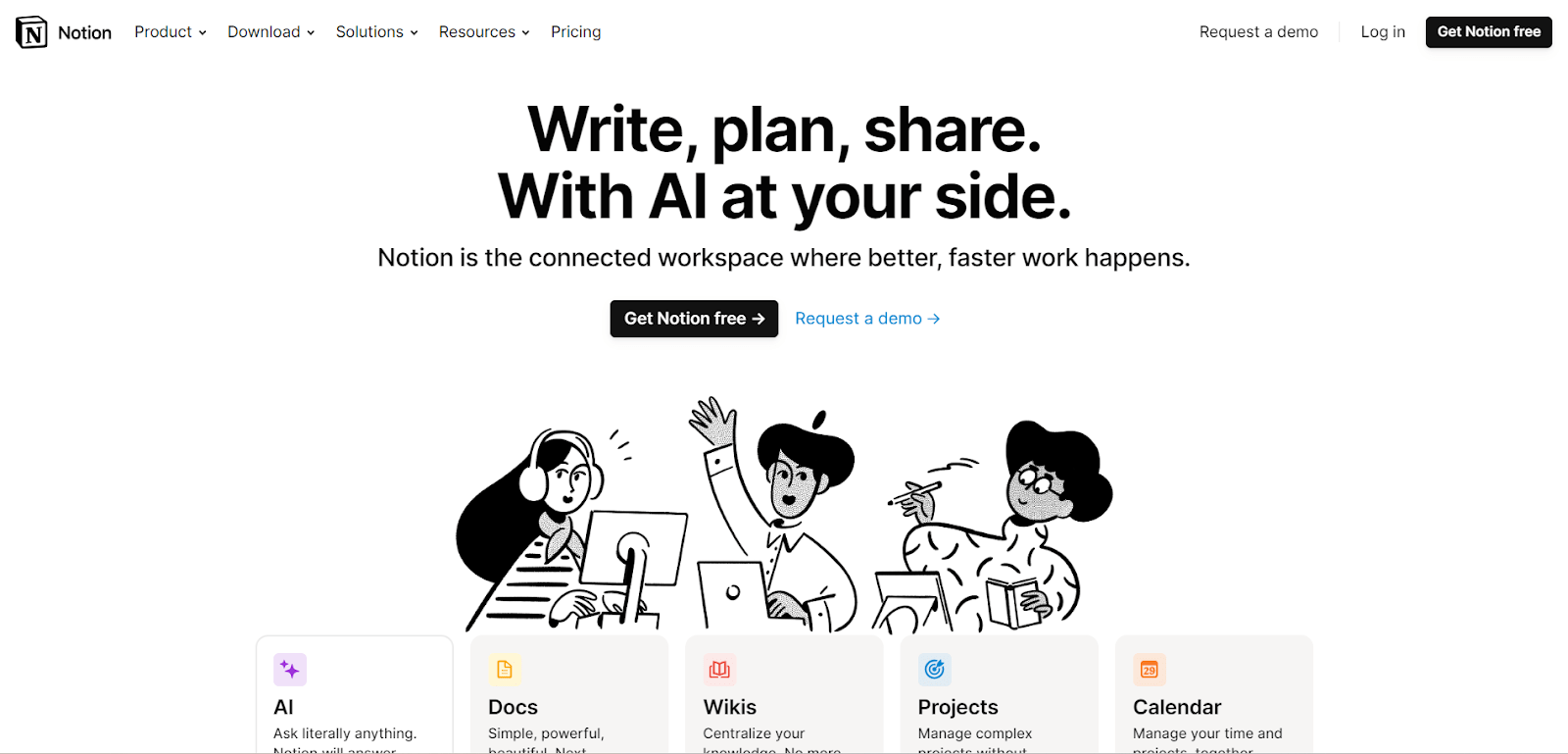
Notion is a minimalistic tool ideal for various marketing needs. Think of it as an upgraded version of Notes and Google Sheets combined. Teams rely on Notion for tasks like content planning, tracking, organizing references and digital marketing assets, brainstorming new content ideas, and more.
Pros: Notion is a simple and customizable platform for tracking marketing efforts, making it suitable for content creation and planning, even though it lacks auto-publishing and automated approvals.
Cons: Notion is often considered a jack-of-all-trades, offering many features but lacking advanced ones, especially in publishing.
7. GatherContent:
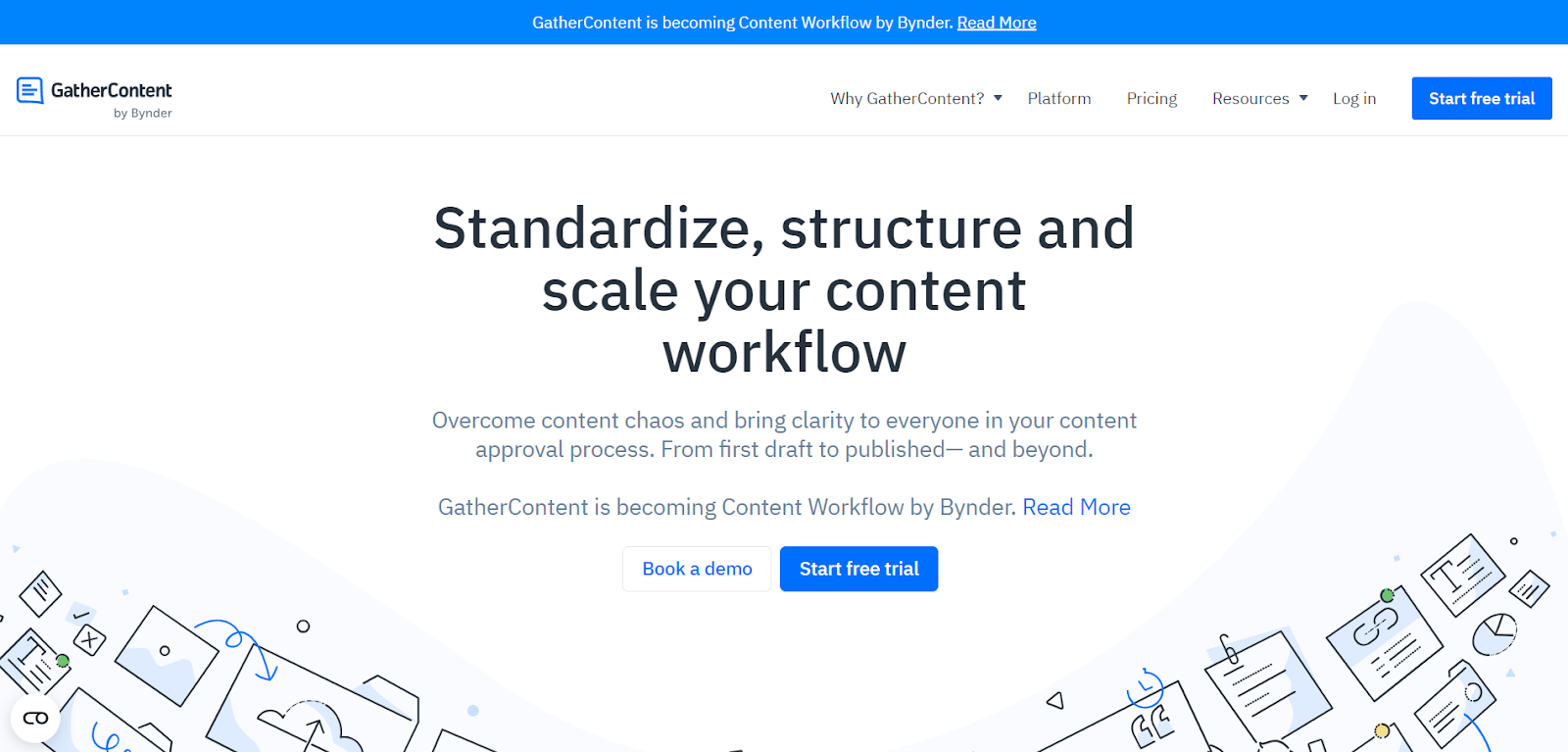
GatherContent is a content collaboration platform ideal for content strategists and writers. It streamlines content production, review, and approval processes.
Pros: GatherContent is a good choice for those building an automated content pipeline, offering a more optimized way to store content. It supports team consistency and efficiency in maintaining a regular content schedule.
Cons: GatherContent is relatively expensive, and some users find its features and interface less straightforward. There are alternatives listed for those who have tried it and want other options.
8. Teamwork:

Teamwork stands out as a comprehensive project management software, sharing similarities with other task management tools like Asana or Trello. What sets Teamwork apart from Asana is its outsourcing focus, making it particularly well-suited for marketing agencies and teams collaborating with freelancers.
Pros: Teamwork is an easy-to-use and thorough management tool, great for agencies creating content for clients or in-house teams working with freelancers.
Cons: However, as a project management tool, Teamwork doesn’t have specific features for content, like scheduling messages or tracking analytics.
9. Asana:
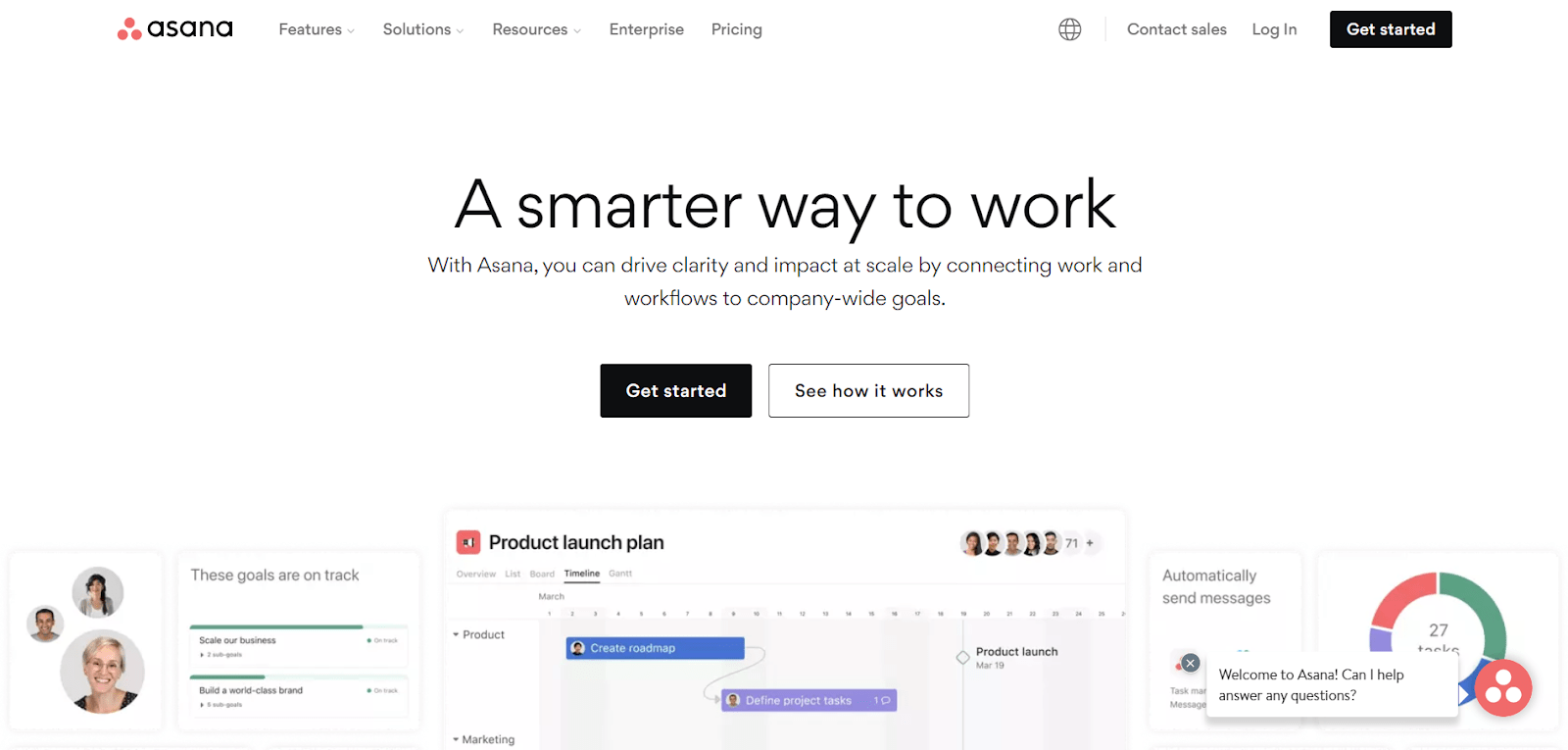
Asana’s project management capabilities make it a valuable tool for content planning and team collaboration. It offers task assignments and deadlines.
Pros: Despite its general management focus, Asana is a good choice for content planners due to its user-friendly design and customization options.
Cons: Asana is mainly focused on managing projects and lacks specific features for handling content.
10. Brafton:

Brafton, a company known for content marketing, created a platform specifically for other content marketers. This platform helps them manage everything related to content marketing, from individual projects to entire marketing plans with multiple campaigns. It’s powerful and flexible, making it adaptable to different needs.
Pros: Despite its limitations outside content marketing, the Brafton Platform is well-equipped for content marketing workflows from the start. With a remarkably low cost per user, especially for larger teams, it covers all the essential aspects expected from a content marketing platform.
Cons: Brafton Platform’s versatility is limited compared to more general tools like Asana when it comes to use cases beyond content marketing.
11. Loomly:
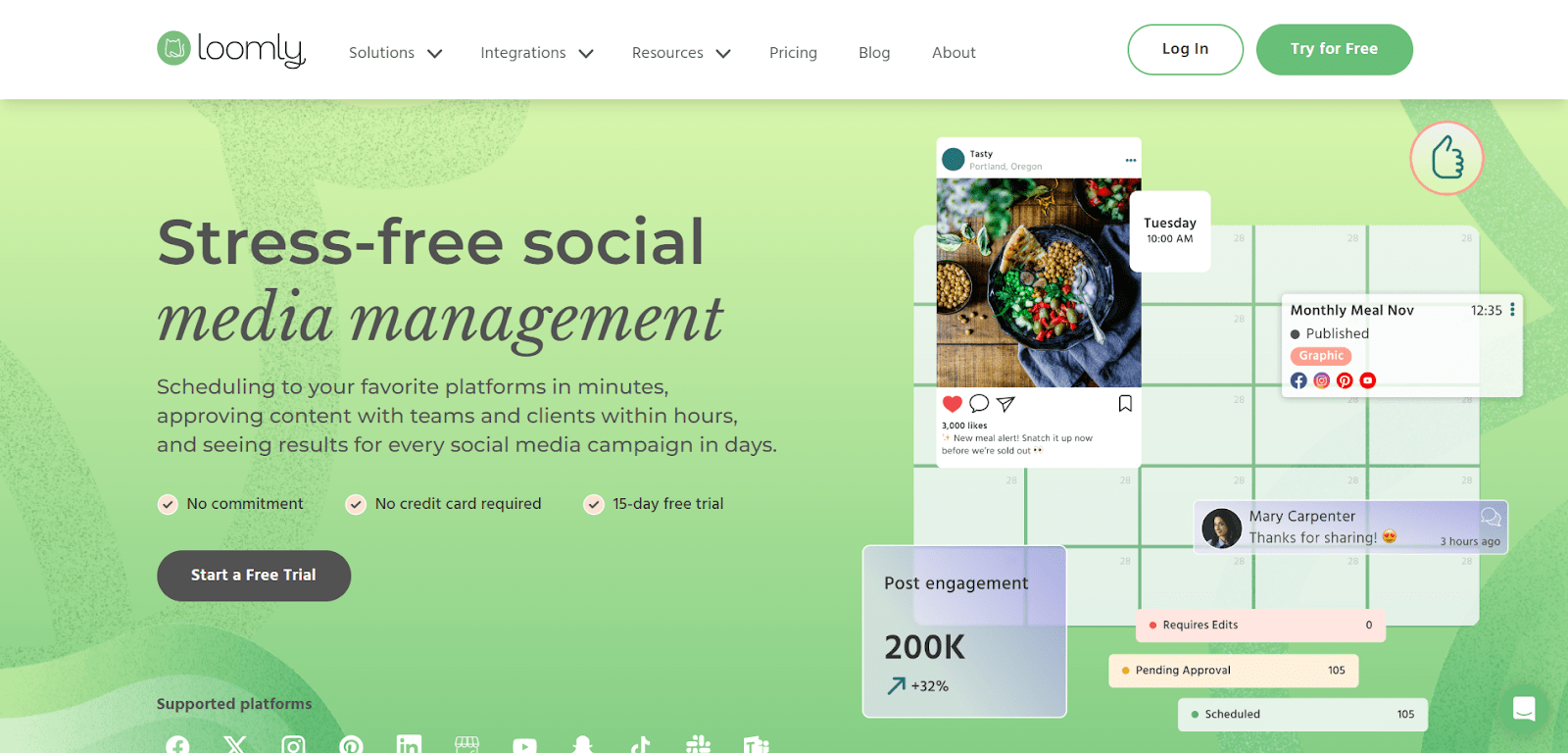
Loomly is a handy tool for social media teams, offering a straightforward interface and easy onboarding for managing content schedules. It effectively supports major platforms like Pinterest and Snapchat, addressing common challenges faced by social media teams.
Pros: Loomly aids social media teams in staying organized and generating fresh ideas for engaging content. It facilitates collaboration through features such as content calendars, custom workflows, and notifications, ensuring seamless communication among contributors. If you’ve already given Loomly a try and are exploring other options that might better suit your needs, check out this list of alternative tools.
Cons: There is a limitation with Loomly – it cannot automatically post on Snapchat and certain custom channels.
Last Words
To make your online marketing work well, you need a good plan for what you want to share. But it’s not just about the plan; you also need the right content marketing tool to make it all happen smoothly.
To find the best tools for your brand, think about what’s most important for you. Do you want a tool that can post on your social media directly? Or do you need a tool that takes care of everything for your online marketing from the beginning to the end? Choose what fits your needs best!
Ready to redefine your SaaS content strategy? Check out our page for an A-Z coverage on everything SaaS



